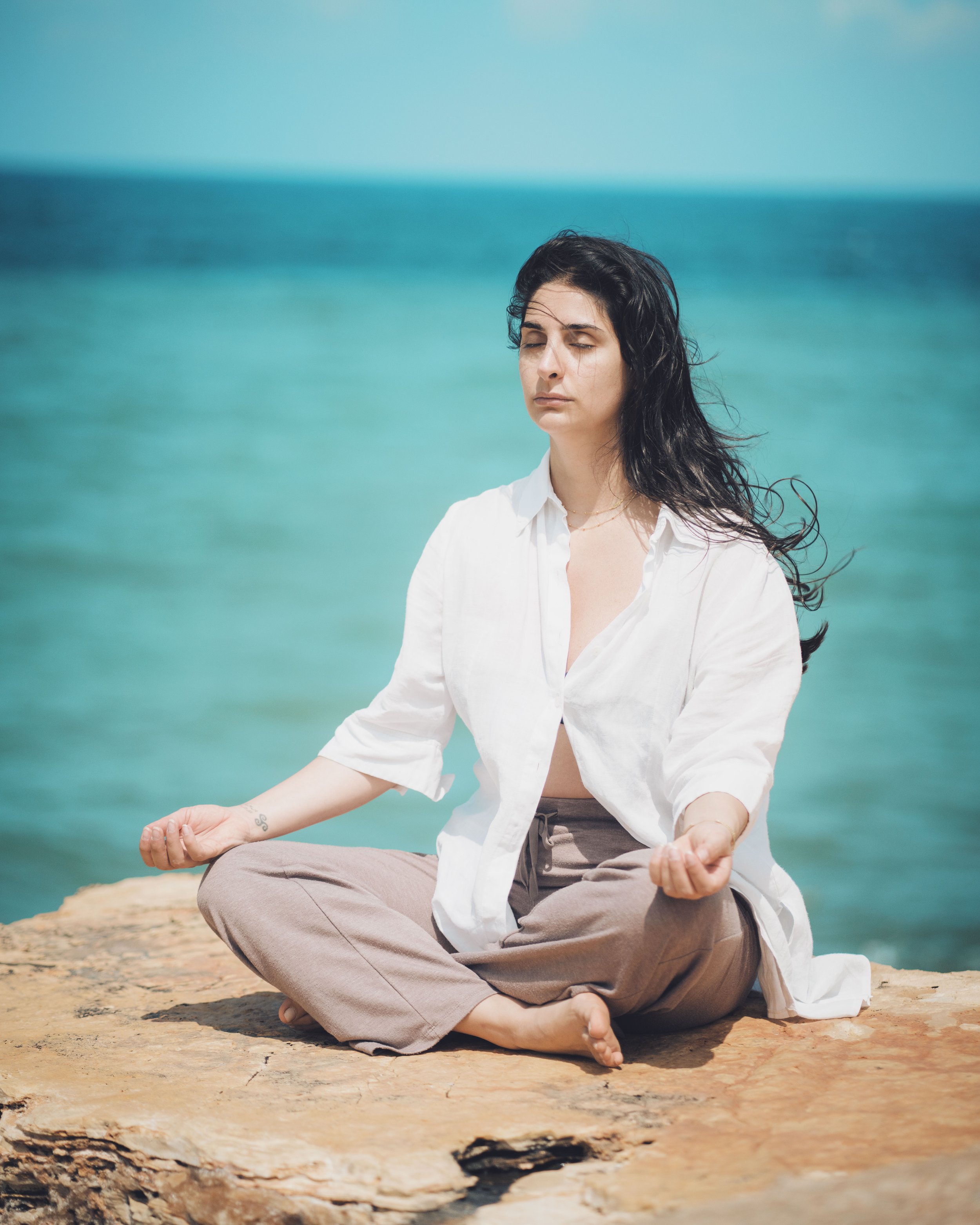
“In the midst of movement and chaos, keep stillness inside of you”
— Deepak Chopra
Meditation is a tool for rediscovering the body’s own inner intelligence.
Practiced for thousands of years, it’s not about forcing the mind to be quiet; it’s finding the silence that’s already there and making it a part of your life.
It’s the weaving of silence and stillness into your mind and body to create a life of greater compassion and fulfillment.
Meditation is a journey to the center of our very being; a journey to emotional freedom; and a journey to the reawakening of our unconditioned self.
1:1 Meditation Sessions
Through a combination of pranayama and mindfulness, we will create the conditions for your meditation practice. During your meditation practice, you will learn how to use your mind to transcend your mind, experience ‘‘witnessing awareness’’ amidst mental activity, and nurture your sense of being.
Session duration: 45 minutes
(sessions can be conducted both online and in-person)
-
Single session: USD 60
Package of 4 sessions: USD 220 (at a reduced fee of USD 55/session)
Frequently Asked Questions
-
The best meditation technique is the one that works best for you. Mantra meditation is a technique that can be easily learned and practiced, and which has proven to be effective for thousands of people. If you are already practicing another technique that you enjoy and that you feel is giving you many benefits, then it’s recommended that you continue with it. Do not feel that it is necessary for you to change and try something else at this time.
-
It's normal to be distracted by sensations, images, feelings, thoughts, and noises in the environment. Do your best not to force yourself to think or concentrate on the mantra. Thinking the mantra is subtle, almost like listening to it. Let it come and go just as easily as any other thought. The less we do, the greater the benefits will be.
-
Meditation is a natural process for restoring balance and harmony in physiology by re-enlivening the body’s healing mechanisms. It helps us to restore wholeness within our mind-body system. Many people have noticed dramatic improvements in their lives and in their health as a result of their meditation practice. However, meditation should not be looked upon as a cure for any particular health problem, and students should not discontinue the advice or medication that they are currently receiving from a health care practitioner.
-
It is perfectly okay to have thoughts during meditation. In fact, thoughts are a natural and inevitable part of the process. The mantra itself is just another thought, even though it has no meaning. During mantra meditation, we think the mantra and when we become aware that we have drifted off to thoughts, we gently bring our attention back to the mantra without judgment. We do not struggle against thoughts. We do not try to shut them out. They are part of the process. We just flow back and forth from the mantra to thoughts, to the mantra, and back to thoughts. Eventually, we get to very refined levels of thought and we slip beyond the mantra, beyond thoughts, into the gap, to the level of the soul and spirit.
-
The benefits will start to accumulate from the first time you start meditating. If you continue to meditate on a regular basis, the benefits will come at whatever speed and at whatever rate is easiest for your body to assimilate them. We all grow and evolve at whatever rate is most appropriate for us. Sometimes we notice the benefits immediately. Sometimes it is weeks or months before we really notice the changes. Sometimes it is other people who notice the changes in us before we notice them. As long as you are meditating regularly, the benefits will continue to accrue.
-
Remember that there is no particular experience that you should have when you meditate. When you meditate, the experiences that you have are the experiences that are the best for your physiology at that time.
-
Restlessness and frustration are indications that a lot of stress is being released, and this is one reason we are practicing meditation. When you have this experience, be gentle with yourself. Continue with your practice, and if it becomes too much, stop and just allow any frustration or restlessness to surge through and then leave your body. When this dissipates, resume your meditation. This is not the time to quit your meditation practice. This is the time to continue with the meditation so that you can get rid of those stresses.
